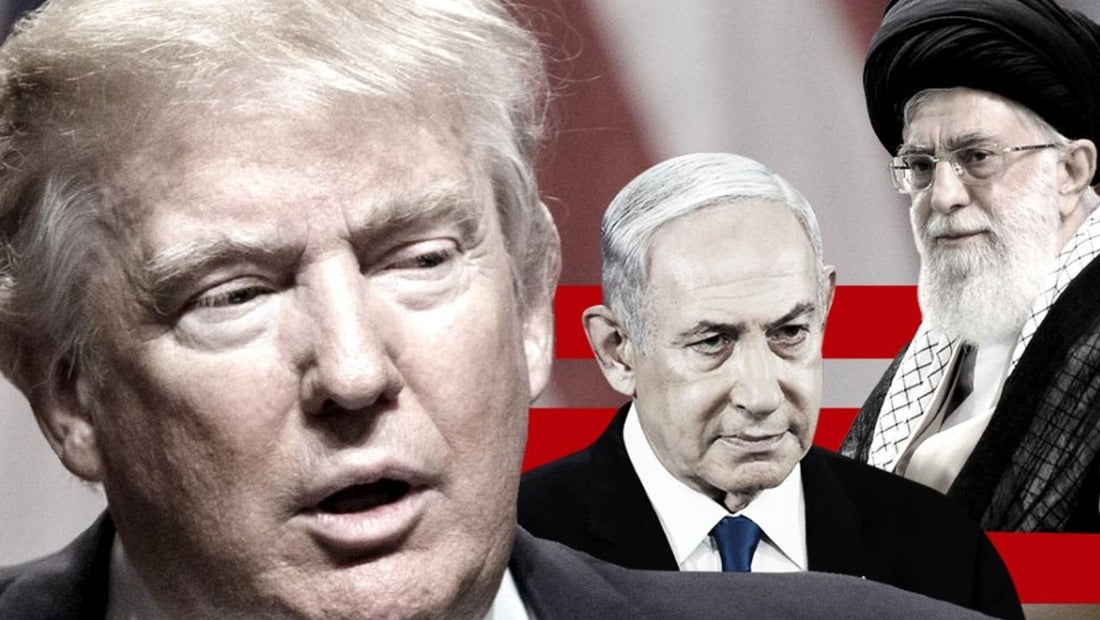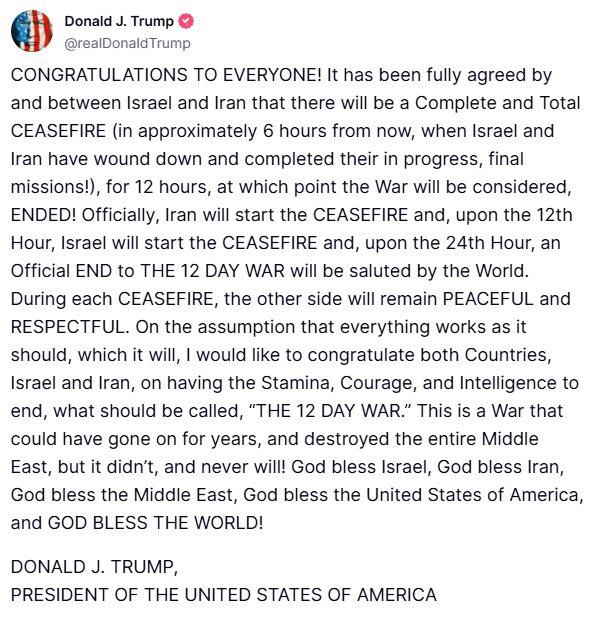Iran-Israel Conflict: Trump’s Ceasefire Declaration Met with Denial and Uncertainty

The conflict between Israel and Iran, now entering its twelfth day, took an unexpected turn on Monday night when U.S. President Donald Trump announced a "complete and total ceasefire" between the two nations. However, this declaration was swiftly contradicted by Iran, which denied any such agreement, creating further uncertainty in the already volatile Middle East and leaving diplomats and international leaders searching for clarity.
President Trump made the announcement via his platform Truth Social, asserting that both Israel and Iran had consented to a phased ceasefire. According to Trump's statement, Iran would cease hostilities first, followed by Israel twelve hours later, culminating in a full cessation of the 12-day conflict. He credited the agreement as a significant diplomatic achievement, praising both nations for avoiding a broader regional crisis.

Nevertheless, Iran's Foreign Minister Seyed Abbas Araghchi quickly refuted any finalized ceasefire arrangement. He stated that Iran's stance had not changed, insisting on a halt to what it called Israel's "illegal aggression." Araghchi confirmed that Iran would not make unilateral decisions without further discussion. Despite this, Iran later confirmed that its military actions stopped at 4 a.m. Tehran time, with Araghchi expressing gratitude to the armed forces for their preparedness.
Iran's Supreme Leader Ayatollah Ali Khamenei addressed the situation, emphasizing that Iran had not capitulated and would continue to defend its sovereignty. He remarked that the Iranian people have long resisted oppression and would continue to do so.
President Masoud Pezeshkian reiterated that Iran did not seek conflict but would respond to any acts of aggression. He made this statement following an Iranian missile strike on a U.S. military base in Qatar.
Before the ceasefire announcement, Iran launched a missile attack on the Al Udeid Air Base in Qatar, citing illegal military actions by the U.S. and Israel as the cause. This followed a reported Israeli drone strike on Tehran's Evin prison, prompting further Iranian strikes on Israeli cities under Operation "True Promise 3."
Qatar condemned the missile attack but confirmed that most of the missiles were intercepted. The U.S. military reported that 13 out of 14 missiles were neutralized, with no injuries to American or Qatari personnel.
President Trump downplayed the impact of the Iranian missile attack, describing it as a "very weak response." He expressed gratitude for the early warning provided by Iran and commended the Emir of Qatar's efforts in easing tensions. Trump emphasized that the absence of casualties was paramount, suggesting that peace was now within reach.
In another development, Trump criticized former Russian President Dmitry Medvedev over reports that Russia might assist Iran in obtaining nuclear warheads. Trump labeled the suggestion as "reckless" and called for clarification, warning that such actions could trigger a global crisis.
As military activities come to a temporary halt, the unclear status of the ceasefire poses significant questions about long-term stability in the region. Trump's announcement, lacking formal endorsement from Iran, highlights the challenges of diplomatic negotiations in this context. Experts caution that the involvement of multiple state actors, nuclear implications, and an absence of a structured agreement could quickly undermine any progress made.
With the world on high alert amid ongoing geopolitical tensions and unresolved issues, the coming days will be critical in determining whether this situation signifies the conclusion of a war or merely a pause in an extended conflict.



















